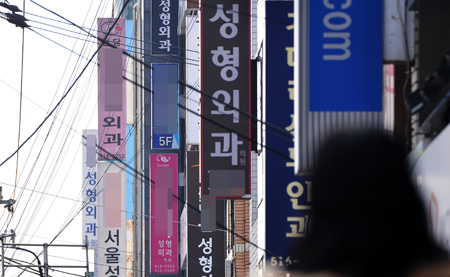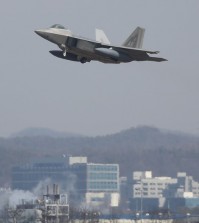- California Assembly OKs highest minimum wage in nation
- S. Korea unveils first graphic cigarette warnings
- US joins with South Korea, Japan in bid to deter North Korea
- LPGA golfer Chun In-gee finally back in action
- S. Korea won’t be top seed in final World Cup qualification round
- US men’s soccer misses 2nd straight Olympics
- US back on track in qualifying with 4-0 win over Guatemala
- High-intensity workout injuries spawn cottage industry
- CDC expands range of Zika mosquitoes into parts of Northeast
- Who knew? ‘The Walking Dead’ is helping families connect
Cosmetic jaw surgery poses big risks
By Yoon Ja-young
Kang, a female in her early 30s, went ahead with cosmetic orthognathic surgery so that she could have a slimmer face at a clinic claiming to have treated many celebrities. She was transferred to a recovery room after the operation on her jaws, but started bleeding. She drowned when the blood blocked her respiratory tract.
Cases like Kang are not rare. Even if they succeed in the surgery, many suffer side effects like numbness. The problem is that jaw surgery, which was originally developed for patients with facial deformities, is considered a kind of cosmetic surgery in Korea. Many doctors are keeping silent as the surgery, costing over 20 million won, is very profitable for them.
“The first corrective jaw surgery of the modern type was mandibular surgery reported in Switzerland in 1955. The method was developed in the United State later on, but currently Korea has the largest number of such operations in the world. It is due to the extreme look-ism and people considering it as normal cosmetic surgery,” said Prof. Yang Byoung-eun at the Department of Dentistry of Hallym University Sacred Heart Hospital.
The surgery involves cutting the upper and the lower jawbones, to realign them for patients with facial deformities, so that they can chew and talk properly and regain self-esteem.
However, Prof. Jung Young-soo at Yonsei University Dental Hospital said he sometimes sees patients who demand the surgery even if they don’t have any such problem. “Probably they will be satisfied only with the fact that they got the surgery. I reject such patients no matter how much they demand it,” he said in a lecture. “There should be scientific analysis of whether the patient really needs the surgery or not. The doctor should not simply accept what the patient wants,” he said.
As many crucial and sensitive structures like vessels and nerves are located behind the jaw bones, problem can occur anytime. Prof. Jung said even the most skilled surgeons can’t guarantee that there won’t be any side effect. For instance, nerves can be pinched during the operation. “Around 10 percent of patients get this sensory disorder. The numbness continues.” He said that while some patients recover, the symptom can last for a lifetime in others. There is no solution for these people. “I tell them that they will be used to it after about six months. That’s true.”

A cluster of plastic surgery clinics in Apgujeong-dong, southern Seoul. Doctors stress that jaw realignment should not be considered as a cosmetic surgery procedure. (Korea Times)
He said that doctors should be frank. “They should tell the patients that they can get sensory disorder after the surgery … However, most doctors just say there won’t be any problem, and that their senses will return even when they come to have a problem. Doctors should tell them the truth.”
Prof. Yang is also very cautious about the surgery. “The skill of the surgeon is proportional to the number of surgeries he or she has done, but in case of this procedure, you can’t be sure even with more than 10 years of experience,” he said. “It’s been less than 10 years since this type of surgery was first performed in Korea. That’s why you shouldn’t choose certain clinic only because many entertainers got surgery there.”
He stressed that patients should choose hospitals that are prepared for all emergencies. Most of the victims of the surgery die of suffocation, as their respiratory tract is blocked by sudden bleeding after the operation. The jaw has many complicated vessels and nerves, and it tends to bleed a lot even with a small cut. As blood pressure, which falls during surgery, rises to normal levels during recovery, there can be unexpected bleeding. Moreover, as the nasal membrane often swells after surgery and the upper and lower jaws are fixed together for recovery, the blood can get into the respiratory tract if the patient bleeds. “Unexpected bleeding can lead to difficulty in breathing, but as the jaws are bound together, the patient can’t talk. There should be medical staff to watch the patient for at least 24 hours after the surgery,” the professor said.
















